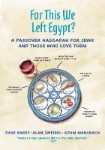The beauty of learning and sensemaking; Thoughts on “Moving Forward” by Jacki Edry

Buy this book at Amazon or for Kindle or at Bookshop
“Reflections on Autism, Neurodiversity, Brain Surgery, and Faith”
“I have been blessed with the ability to learn and experience new and beautiful things every day.” I did not just find this sentence – from the 81st page of Jacki Edry’s book – beautiful but also inspirational. The personal reason that it brightened me was that it deeply resonated with me. I realized that in those days of mine when I learn something I feel happier and more balanced. I also know that I often crave new experiences and feel more satisfied when I get them. But I have never put these together and certainly not so succinctly as Edry did. It also made me wonder what’s behind this. My life experiences, health history, background, gender, and level of religious practice are vastly different from hers, yet this quote grabbed me as the essence of my life too. The answer, at least partially, is coming from Judaism. I believe that, for a variety of reasons, Jews value learning more than others. This got ingrained into us through hundreds of generations, so now it is a basic driving force for us and also defines what we find beautiful. It also helped Edry to find the force to not just survive her challenges but to thrive despite and because of them.
By the time I reached this part of the book, which is about halfway through, I already learned a lot of things about her, her family, and more universally about autism, neurodiversity, and perception. It is a rewarding mix of
- An autobiography, including the history of how her understanding of autism deepened through post highschool to becoming a parent of a child with autism
- Parental tips and the stories on how to raise a neurodiverse child with all the pitfalls and rewards included
- Visceral, relatable, and razor-sharp descriptions of the various ways of atypical sensory perception and processing, including visual, auditory, tactile and olfactory, gustatory
- Getting diagnosed with a brain tumor, including the medical and spiritual issues and answers
The next third of the book, 55 pages, documents the author’s recovery from her brain surgery in an edited journal format. The main content of the book is 167 pages long; is divided into five parts each with 3-4 chapters. You may say that me focusing on these numbers is also a sign of slightly being on the spectrum. After all, what do these numbers and proportions have anything to do with the subject matter. Not much, but that is how I am neurodivergent: for me, numbers are part of the sense-making process, they help me “grok” it, whatever “it” is.
I have a challenge: because I was reading a digital copy of the book it was easy to collect quotes that talked to me. I wanted to share some of my favorites, but I am having a hard time narrowing it down to just a few, even after three rounds of shrinking, So here is my top ten:
- p7: In real life, we are seldom immediately rewarded with a piece of candy or a pat on the back.
- p14: Giving children the opportunity to learn in engaging learning situations can also help them to thrive
- p22: people with autism are filled with desires, hopes, and dreams. They might not be able to tell us what they are, but that doesn’t mean they don’t exist
- p82: Jewish outlook on life is filled with purpose, hope, and optimism
- p93: with enough love, hard work, determination, faith, and support, it is possible to overcome immense challenges and to grow and prosper.
- p102: People have a tremendous desire to do chesed (good deeds).
- p112: I have come to realize getting sad is another middah ra’ah – bad trait – that drains all my energy to fight and to get better.
- p116: My inner voice tells me to stop everything, to begin writing, and to dedicate myself to trying to figure out what G-d really wants from me, what my real shlichut (mission) is.
- p118: My soul is fighting with my body to find inner peace and to connect with G-d.
- p162: We Are Not Our Pain …I believe the way people define themselves also has a direct influence on their overall state of mind and their ability to heal – or at least to move forward.
Sidenote: A few months ago I read a book (Chutzpah, Wisdom and Wine: The Journey of an Unstoppable Woman by Jodi Samuels) in which a mother struggled with Israeli education and health system so they would support and work with her child with Down Syndrome. This book contains a similar struggle for the interests of a child with autism. These fights are similar as in they both depict the authorities as not always treating the parents as partners in finding the ideal solutions for these atypical children.
If you are interested in sensemaking this is an illuminating book. It gives you practical tools to understand the biological, mental, and spiritual processes involved. If you know that reading a book is an opportunity to live otherwise not lived life you will appreciate stepping into the shoes and mind of this strong Israeli woman, who can teach you beauty, faith, and resilience. I have a natural tendency to want to avoid reading books that I assume would make me uncomfortable, so I was reluctant to read it. But I am so glad I did. I am richer with lots of new (for me) lenses to view the world, gained real scientific knowledge, and got to know an admirable role model.
Disclaimer: I have received a copy of this book and a small amount from the author which did not affect my review in any way.
Related links:
- The book’s page on the author’s website: jackisbooks.com
- The author’s page on LinkedIn, Facebook, and GoodReads
Publisher’s description:
Moving Forward is a journey between the worlds of autism, neurodiversity, brain surgery recovery, and faith. It provides a rare glimpse into how sensory and neurological processing affect functioning and thought through the eyes of a professional, parent, and woman who has experienced them firsthand. This book presents an informative, emotional, and empowering account of the challenges and struggles on the road to recovery- as well as the search for understanding, meaning, and faith. It enables you to step into the shoes of someone who has endured the types of sensory irregularities common in people with neurodiversity – including autism, ADHD, dyslexia, Irlen Syndrome, Auditory Processing Disorder, and more, and to gain understanding as to how to cope with these challenges and to compensate for them.
Moving Forward will enlighten parents, professionals, and family members to better understand and assist the neurodivergent people they work with and love.
Year first published: 2021















